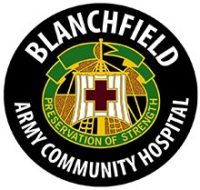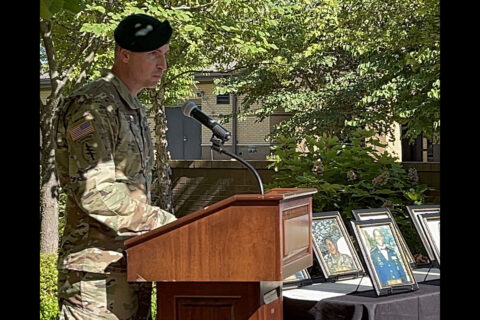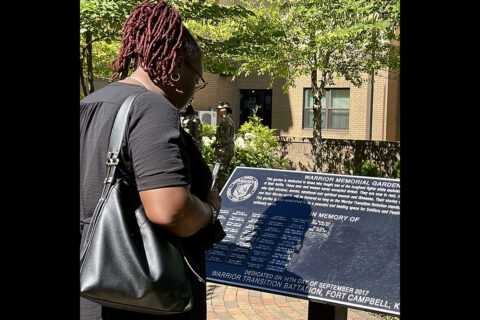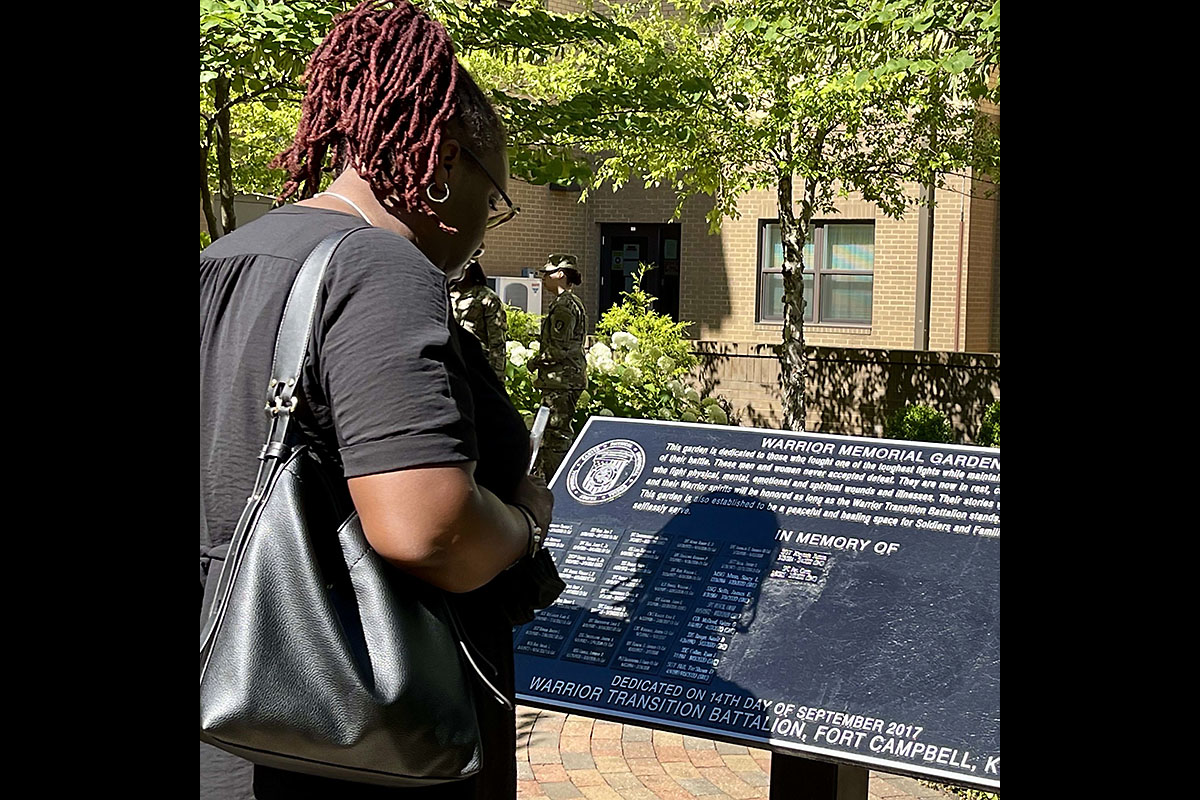Blanchfield Army Community Hospital
 Fort Campbell, KY – Soldiers and civilian staff from the Fort Campbell Soldier Recovery Unit gathered recently to remember the Soldiers memorialized in its garden and add nine additional names.
Fort Campbell, KY – Soldiers and civilian staff from the Fort Campbell Soldier Recovery Unit gathered recently to remember the Soldiers memorialized in its garden and add nine additional names.
“The garden is a place to remember these Soldiers who faced their final battle at the SRU,” said Lt. Col. Joseph Reagan, SRU commander.
Among the Soldiers whose names were added to the garden memorial this year, eight came to the SRU after being diagnosed with a fatal or incurable disease.

The Army established SRUs to support Soldiers who are severely wounded, ill, or injured in the line of duty and in need of six months or more of complex medical case management and rehabilitation in an inpatient or outpatient status.
A typical day involves Soldiers attending medical appointments and following a health care plan determined with their nurse case manager and squad leader.
The goal is to support the recovery of these Soldiers so they may return to duty or assist them with the Integrated Disability Evaluation System process and prepare them for transition from the Army with career and education resources. The SRU also helps provide a seamless hand-off to the VA, facilitating continuity of care.
For Soldiers battling a life-ending, or terminal illness, the SRU’s focus includes improving quality of life for the Soldier, relieving physical, emotional, and spiritual suffering, and supporting their loved ones during a very difficult time.

“I tend to get closer with the families of those Soldiers with a terminal illness even more because they need us afterwards. For many families, we are the closest it gets when it comes to feeling that sense of still being part of the military family,” said Sgt. 1st Class Elizabeth Mercedes, a staff member at the SRU. Mercedes and other cadre help coordinate care for wounded, ill, and injured Soldiers and tend to the needs of the family members who may need assistance during this time.
Mercedes shares her personal contact information as well as her SRU contact information so Soldiers and their families may reach her anytime. Deep bonds and lasting friendships are made as Mercedes and other SRU staff, support wounded, ill, and injured Soldiers and their families through their journey.
“I think our team does a remarkable job for Soldiers with terminal illness and their families. We provide care here but we also offer the option for those Soldiers to be home with family, if that is what they choose to do,” said Reagan. In those cases SRU team members will travel to the Soldier and make home visits.
“Obviously terminal illness is a very difficult thing so the more family support and social network we can surround them with during those final days, the better,” said Reagan.
SRUs feature a family readiness support assistant who works with the unit’s family readiness group and community agencies to assist Soldiers and their families during their time at the SRU.
“We strive to help those families with their decisions and medical care so they do not have to face it alone,” said Reagan.
Family members of the nine Soldiers whose names were added to the memorial garden plaque were invited to attend the ceremony.
“It is very special that they made the time to be with us today. We also had families from previous Soldiers who are honored here. We consider all of them as part of our family and they are always welcome here,” said Reagan.
For more information about the Army Recovery Care Program, refer to AR 40-58.



